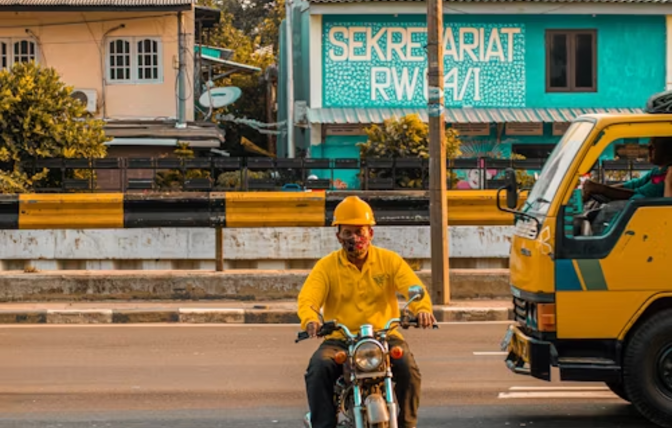
It shows that Indonesia, with its beautiful and breathtaking landscapes, a rich cultural heritage, and warm hospitality of the people, continues to be one of the most wanted destinations for travel in 2025. From the pristine beaches of Bali to the lush jungles of Sumatra, this archipelago with over 17,000 islands offers some unforgettable adventure. However, as with any destination overseas, it is essential to take adequate precautions to safeguard travel. This entire guide gives you necessary safety advice and logical suggestions about how to travel in Indonesia in 2025 that will make you safe, ready, and self-assured in your travels.
Understanding Indonesia's Travel Environment in 2025
Indonesia is a developing country with rapidly advancing tourism infrastructure, but some safety precautions are still needed. Natural events like volcanic eruptions, earthquakes, and monsoon seasons can impact travel, and city destinations may have typical city-associated threats. Per knowledge of the native environment, including political and health issues, tourists can plan safe travel in Indonesia.
Pre-Travel Preparations: The Foundation of Safe Travel
Prior to setting foot in Indonesia, preparation is necessary. Make sure your passport is valid for a minimum period of six months after the date of travel and visa arrangements have been organized based on nationality and duration of stay. Inform your embassy of your trip for additional security measures; it's the humane thing to do.
Vaccinations are an important part of health security. Vaccines that should be recommended include Hepatitis A and B, Typhoid, Tetanus, and, depending on which country or countries you're traveling to, Japanese Encephalitis. Get travel health clinic advice well ahead of when you travel.
Medical requirements, trip cancellation, and luggage loss must be covered under travel insurance. Make sure it covers adventurous activities as well if you are going to dive, climb, or trek into the wilderness.
Capitalizing on Health and Hygiene Risks
Indonesia's subtropical geography and inhomogeneous sanitation standards require visitors to be cautious regarding their health. Tap water is not potable in most places, so bring bottled or purified water along. Bring a refillable, filtered water bottle to drink water in an environmentally friendly way.
Street food is tasty but risky unless picked with caution. Opt for bustling street stalls with good turnover and freshly prepared food to minimize the risk of foodborne sickness. Pack a low-tech medical kit with anti-diarrheal tablets, antiseptics, and your personal prescription.
Mosquito-borne disease like dengue fever, malaria, and Zika virus remains an issue in some parts of Indonesia. Use mosquito repellent with DEET, wear long sleeve shirts during evening and morning hours, and sleep under mosquito nets if dwelling in rural or jungle areas.
Staying Safe: Personal Safety and Crime Prevention
While Indonesia is generally safe to visit, robbery and pickpocketing and bag snatching can happen, especially in busy tourist areas and public transport. Always secure and lock your valuables safe — use robbery-proof backpacks, money belts, or hidden pockets.
Do not display valuables like jewelry, cameras, and phones to discourage opportunistic thieves. When taking a taxi or ride-hailing, ensure that the driver is who he says he is before you get into the car and inform someone about your trip details.
Be careful walking late evenings and avoid dark or isolated spots in the cities of Jakarta and Surabaya. Ensure to stay in secure accommodation with proper security measures in place.
Respect Local Traditions and Legal Laws
Indonesia is a Muslim country with a great heritage of culture and laws that must be obeyed by visiting foreigners. Public display of affection, open clothing inside religious sites, and the drinking of alcohol in certain areas could be offensive or put the visitor in legal trouble.
Laws on drugs are strict, and punishment includes prison or death for trafficking-related crimes. Never take in deliveries or letters from strangers, and be wary of cons.
Learn local ways, like taking shoes off before entering homes or temples, and always ask permission first before taking someone's picture, particularly in rural or aboriginal communities.
Natural Disaster Awareness and Emergency Preparedness
Indonesia is situated on the Pacific "Ring of Fire" and hence exposed to volcanic eruptions, tsunamis, and earthquakes. Stay updated on local news and weather forecasting with good apps or hotel notifications.
Know evacuation areas and emergency meeting spots at your hotel. Visit active volcanoes or trek into remote trails with licensed guides and be aware of government bans or advisories.
In the event of an earthquake, drop, cover, and hold on. On receiving a tsunami warning, evacuate immediately to higher ground and avoid coastal areas until official notification that it is safe.
Transportation Safety Tips
Travelling within Indonesia safely involves knowing about transportation risks as well as local traffic patterns. Road conditions in Indonesia are very diverse so that big cities have well-tarmacked roads while rural towns may have smaller and slippery roads, especially during rainy seasons.
When renting motorbikes or scooters, wear a helmet at all times and ensure that you hold the correct international driving permit. Be careful, as things can get crazy to drive with motorbikes swerving in and out of cars.
For longer distances, fly or take good-quality intercity buses. Don't use crowded, unlicensed public transportation. Island-to-island travel by ferry boat is common, but only ride a boat that has been inspected for safety and has life jackets.
Digital Safety and Connectivity
Keeping your digital security intact while traveling is important. Access public Wi-Fi networks using VPNs to secure sensitive information. Do not log into sensitive or banking accounts while using unsecured networks.
Buy a local SIM card to get improved connectivity and access to ride-hailing services, maps, and emergency numbers. A good 4G network is now available in many areas of tourist interest, but remote islands will lack internet coverage.
Securely store significant documents digitally and maintain hard copies safely. Secure all accounts with strong, memorable passwords and enable two-factor authentication where available.
Conclusion: Top of Mind Awareness and Readiness for a Secure Holiday
Indonesia is a country that provides rich cultural experience and breathtaking natural scenery. By adhering to these step-by-step 2025 travel safety measures, you will be able to visit this beautiful nation in confidence. Preparation, knowledge, and respect for local culture, health precautions, and environmental awareness will make your trip enriching and safe.
Travel smart, remain aware, and take in everything that Indonesia has to offer.













